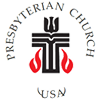Last Sunday began the week we know as, Holy Week. It is marked by some specific holy days, Palm Sunday (last Sunday) when we remember the triumphal entrance of Jesus into Jerusalem on a colt (baby donkey) with people shouting “Blessed is he who comes in the name of the Lord!” and “Hosanna!” Then on Thursday there is, “Maundy Thursday” when we remember the last meal that Jesus ate with friends, what we call the last supper — the beginning of communion/eucharist — and when Jesus served the disciples, the very folks who would betray, deny, and desert him, in such a humble way we still are uncomfortable with it — he washed their feet. And today we have come to Good Friday. We call it good now, but some 2000 years ago it didn’t feel good at all. Today is the day we remember that our Lord & Savior — Jesus Christ — the Prince of Peace — an innocent man — was arrested under false pretenses, condemned, and beaten — all because people (& a system — a government) were afraid of him — and he bore the beating, the shame, the dishonor, and climbed up Calvary to be nailed to a cross & pierced in his side. Because today is the day that his being was created for, to love in such a way that would change the world — and today we know the end — today we know what will come (death & sin DO NOT WIN)…but then, on that original “Good” Friday, no one knew — no one had an inkling…No, on the original “Good” Friday the light of the world went out, the hope of God’s favor, the promise of God’s covenant, life itself died…Today the church (liturgical) color is black, symbolizing the darkness that pervades when the light goes out.
It is Holy Week.
And last Sunday when we made it through some light snow, gathering and praying around the table as we do, we began Holy Week. We began first with reflections on using the Lord’s prayer as a model for prayer and we shared the Lord’s prayer in our own words. And while some struggled with using the model to pray, finding it hard to pray for our (my) daily bread — knowing so many go hungry — others struggled to find their own words to pray. However, the struggle for words seems to be more of a struggle to in confidence share what God has given — because we often don’t think what we have to offer is good enough. And as we were bold enough to share, the voice — our individual voices — were a blessing and encouragement to others. We heard the model of the Lord’s prayer personalized to what we could say, what we needed to pray, and I think, the Lord’s prayer became more than something that was memorized years ago — it became something more personal, something that we think about a bit more when we pray it. And then we shifted and because it’s Holy Week, we considered, Matthew 21:1-9.
We noticed the donkey (momma-donkey) and her colt were taken to Jesus. We noticed that the reading of the different translations made us wonder if Jesus rode both the donkey & the colt at once (or perhaps more likely that Jesus rode on top of the cloaks that were spread on the colt.) We thought about Jesus coming into town this way. And I think too there was even a mention of how this crowd could have been those who just a few days later would go from crying “Hosanna!” (save us) to “Crucify Him!”
There was talk of how we (good reformed Presbyterians) are typically a bit uncomfortable with the loud declarations of praise — we are a bit uncomfortable with crying “Hosanna!” out loud. And it was named that this week, this Palm Sunday & Easter/Resurrection Sunday are 2 of the biggest Sundays where even WE (Presbyterians) can get LOUD — are encouraged to shout first “Hosanna! Blessed is he who comes in the name of the Lord!” and second, “He is risen indeed!” And so our homework is rather fitting….to discern what your deep & loud Hosanna! is right now — to consider what your heart praise is right now — and to offer that praise — that LOUD HOSANNA back to GOD.
This is Holy Week. And the invitation for the homework is to find the deep praise even in the darkness of “Good” Friday.
In Christ & during Holy Week ~
Rev. Sabrina Slater

